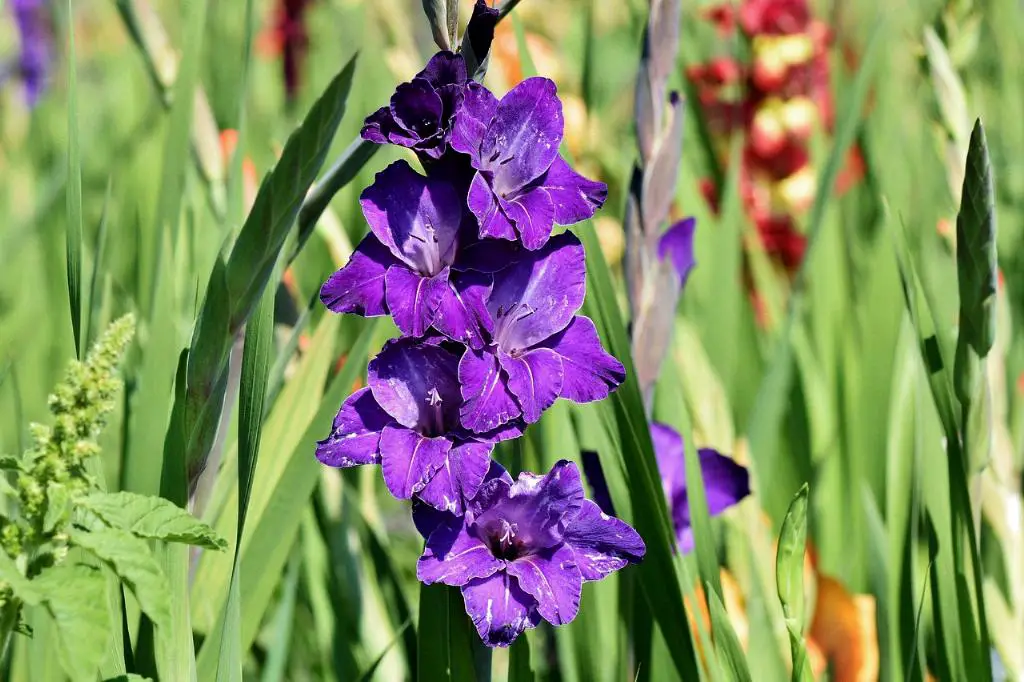Gladiolus is a beautiful flowering plant that many gardeners love to cultivate for its vibrant colors and striking appearance. However, when it comes to our feline friends, it’s essential to be cautious because gladiolus, just like iris plants, can be toxic to cats. While ingestion of gladiolus is usually non-fatal to cats, it can lead to various uncomfortable symptoms that pet owners should be aware of to protect their beloved furry companions.
Overview of Gladiolus
Gladiolus, also known as sword lily, is a popular plant in gardens and floral arrangements due to its tall flower spikes and bright blossoms. The plant contains toxins that can be harmful to cats if ingested. The level of toxicity can vary depending on the cat’s age, size, and the amount of gladiolus consumed.
Toxicity of Gladiolus to Cats
Both iris and gladiolus plants are toxic to cats, causing discomfort and potential health issues when ingested. Common symptoms of gladiolus toxicity in cats include diarrhea, skin irritation, vomiting, abdominal pain, nausea, and mouth ulcers. While these symptoms can be distressing, they are typically not life-threatening.
Signs of Poisoning in Cats
If a cat has ingested gladiolus, pet owners should watch out for signs of poisoning, such as excessive drooling, difficulty breathing, lethargy, loss of appetite, and changes in behavior. It’s crucial to monitor your cat’s condition closely and seek veterinary care if any concerning symptoms arise.
Immediate Steps to Take if a Cat Ingests Gladiolus
If you suspect that your cat has eaten gladiolus, it is essential to act quickly. Remove any remaining plant material from the cat’s mouth, wash off any residue on their fur or skin, and contact your veterinarian immediately for guidance on the next steps to take.
Treatment for Gladiolus Poisoning in Cats
Upon seeking veterinary care, the treatment for gladiolus poisoning may include inducing vomiting, administering activated charcoal to absorb the toxins, providing supportive care to manage symptoms, and monitoring the cat’s condition closely until they have fully recovered.

Preventative Measures to Protect Cats from Gladiolus Toxicity
To prevent accidental ingestion of gladiolus by cats, pet owners should consider keeping these plants out of reach, creating a safe and cat-friendly environment, and providing alternative non-toxic plants for their feline companions to enjoy. Being proactive in ensuring the safety of your cat can help avoid potential toxicity incidents.
In conclusion, while gladiolus is a stunning plant that adds beauty to gardens and bouquets, pet owners must be aware of its potential dangers to cats. By understanding the toxicity of gladiolus, recognizing the signs of poisoning, taking immediate action in case of ingestion, seeking prompt veterinary care, and implementing preventative measures, pet owners can safeguard their beloved cats from the harmful effects of gladiolus toxicity.
